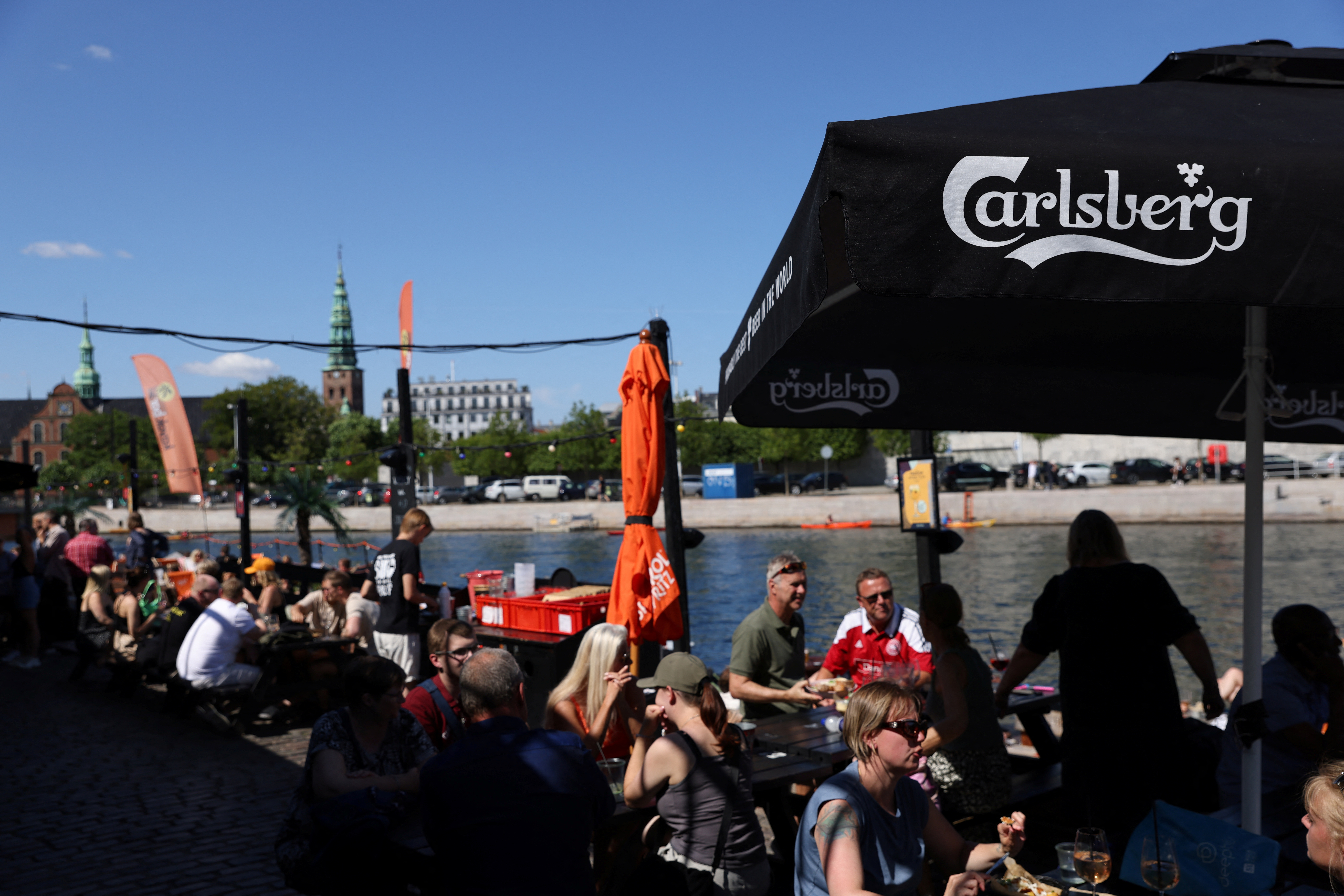[ad_1]

People sit under signage for Carlsberg beer at a terrace in Copenhagen, Denmark, July 30, 2022. REUTERS/Andrew Kelly/File Photo Acquire Licensing Rights
COPENHAGEN, Aug 16 (Reuters) – Carlsberg (CARLb.CO) was “shocked” by Russia’s seizure of its business in the country last month and the brewer is no closer to knowing what might happen next, its CEO said on Wednesday.
Russia took control of the Danish group’s eight breweries and 8,400 employees in the country last month, shortly after Carlsberg had agreed to sell the unit to an undisclosed buyer.
“We have known from the beginning, since announcing the intention to leave Russia in March of last year, that there was huge interest in the business from people inside Russia. But still, this is an unprecedented development,” CEO Cees ‘t Hart said on a media call.
Last year, the group took a 9.9 billion crown ($1.5 billion) write-down on its Russian Baltika unit. According to a Russian presidential decree last month, Carlsberg retains ownership of the unit but no longer has any control or influence over it.
“Technically, this is not a nationalisation, but how it will unfold is unclear for us at this point in time,” Hart said. “This latest development will make it even more painful to leave Russia.”
Carlsberg is not in contact with any of its employees in Russia but remains in limited contact with Russian authorities, Hart said.
Many multinational companies flocked to leave Russia after the West imposed unprecedented sanctions on Moscow following its full-scale invasion of Ukraine in February 2022, but the Kremlin has retaliated by seizing some assets.
Hart, who took the helm at Carlsberg in 2015, will be replaced by the CEO of services provider ISS (ISS.CO) Jacob Aarup Andersen on Sept. 1.
On Tuesday, Carlsberg lifted its profit guidance for this year.
Sales in the second quarter rose 4% to 21.4 billion crowns from a year earlier, compared with analysts’ average forecast of 21.5 billion in a poll provided by Carlsberg.
The company does not provide quarterly earnings numbers, but said operating profit before special items in the first six months of the year fell slightly to 6.27 billion from a year earlier, compared with the 6.13 billion forecast by analysts.
It benefited from growth in key Asian markets, including China, as well as consumers accepting price increases.
Carlsberg, which also produces brands such as Kronenbourg 1664, Tuborg and Somersby, said revenue per litre sold globally increased 10% in the first half of 2023, indicating consumers bought more expensive beers.
However, costs per litre of beer sold increased by 13% due to higher salaries and prices of raw materials and energy, it said.
Carlsberg shares were down 2.8% at 0810 GMT.
($1 = 6.8278 Danish crowns)
Reporting by Jacob Gronholt-Pedersen
Editing by Terje Solsvik and Mark Potter
Our Standards: The Thomson Reuters Trust Principles.
[ad_2]
Source link
